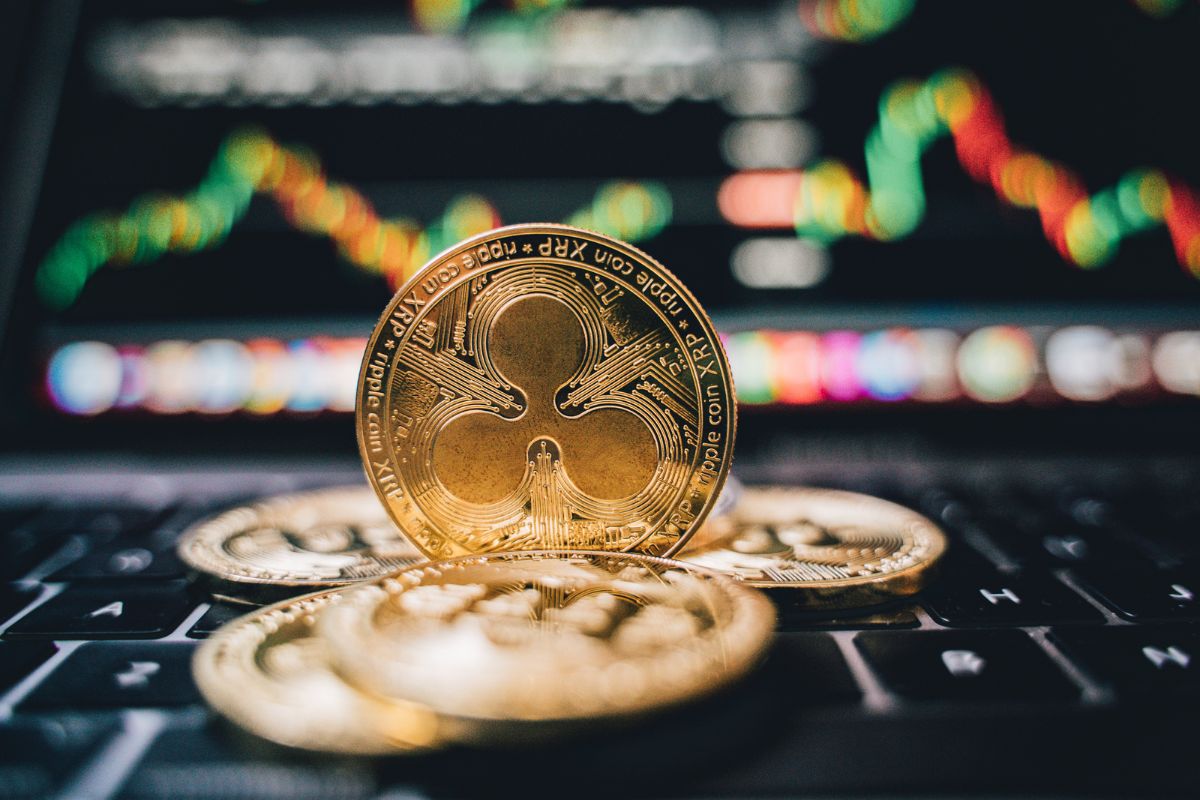Definition and Function
Cryptocurrency processors are the linchpin of digital currency networks, executing complex algorithms to validate and secure transactions. Through an intricate symphony of hardware and software, these processors perform the crucial task of maintaining the integrity of the blockchain, the ledger that records all cryptocurrency dealings.
The Evolution of Cryptocurrency Processing
From the nascent stages of Bitcoin to the proliferating array of digital currencies today, cryptocurrency processing has undergone a formidable evolution. What began as a task manageable by conventional computers has escalated into a specialized industry requiring robust infrastructure.
Importance in Modern Finance
Cryptocurrency processors are more than just technological marvels; they are the vanguard of modern finance, facilitating a decentralized banking system. They empower users to transact without the intermediaries traditionally required in financial operations, heralding an era of autonomy and innovation in economic exchanges.
How Cryptocurrency Processors Work
-
Transaction Verification
The verification process is a cryptographic tour de force, where processors scrutinize transactions for authenticity and ensure they are not duplicates, thereby upholding the ‘no double-spending’ rule that is foundational to digital currency’s trustworthiness.
-
Block Creation
Once transactions are validated, they are amalgamated into a block. Cryptocurrency processors then undertake the arduous task of solving computational conundrums to add these blocks to the blockchain, a process that is both time-intensive and computationally demanding.
-
The Role of Consensus Algorithms
Consensus algorithms are the bedrock of cryptocurrency processing, ensuring all participants in the network agree on the current state of the blockchain. These algorithms, such as Proof of Work and Proof of Stake, maintain the democratic ethos of cryptocurrency by preventing any single entity from wielding disproportionate influence.
Types of Cryptocurrency Processors
-
Individual Mining Rigs
The solitary miners with their rigs, though less common now due to increasing complexity, are the original participants in cryptocurrency processing. These setups range from modest desktops to more sophisticated custom-built systems.
-
Mining Pools
As the difficulty of processing transactions increased, miners congregated to form pools, combining their computational prowess to increase their chances of success and, consequently, the rewards.
-
Cloud Mining Services
For those averse to capital expenditure on hardware, cloud mining services offer a gateway to participate in cryptocurrency processing. These services rent out processing power to users, obviating the need for personal equipment.
-
ASICs vs. GPUs
The hardware debate in cryptocurrency processing circles centers on Application-Specific Integrated Circuits (ASICs) versus Graphics Processing Units (GPUs). ASICs are tailored for mining efficiency, whereas GPUs offer flexibility, being suitable for other computational tasks as well.
Cryptocurrency Processor Technology
-
The Blockchain Infrastructure
At the heart of cryptocurrency processing lies the blockchain, a distributed database that is immutable and transparent. This groundbreaking technology underpins the processors’ operations, providing a secure and unalterable record of transactions.
-
Hashing Algorithms Explained
Hashing algorithms are cryptographic functions that transform input data into a fixed-size string of characters. These are pivotal in maintaining the blockchain’s sanctity, as they secure each block and link it to its predecessor, creating an unbreakable chain.
-
The Significance of Processing Power
Processing power is the currency of cryptocurrency mining. The higher the computational output, the greater the miner’s capacity to solve cryptographic puzzles and reap rewards. It is a relentless race, with processing power serving as both the steed and the prize.
The Economic Impact of Cryptocurrency Processing
-
Processor Manufacturing and Market Demand
The surging demand for cryptocurrency processor has rippled through the manufacturing sector, sparking a gold rush for companies producing ASICs and GPUs. This demand has not only spurred technological advances but has also impacted the global supply chain of semiconductors.
-
Energy Consumption and Sustainability
The Herculean energy requirement of cryptocurrency processing has ignited debates on sustainability. As processors consume vast amounts of electricity, the industry faces pressure to seek renewable energy sources and reduce its carbon footprint.
-
The Influence on Cryptocurrency Valuation
Cryptocurrency processors directly influence the market valuation of digital currencies. Their ability to efficiently and swiftly process transactions affects transaction fees and, by extension, the attractiveness of a cryptocurrency as a medium of exchange.
Legal and Regulatory Considerations
-
Global Regulatory Landscape
The decentralized nature of cryptocurrency processing presents a conundrum to regulatory bodies. Jurisdictions worldwide grapple with creating frameworks that safeguard consumers while not stifling innovation.
-
Compliance and Legal Frameworks
Cryptocurrency processors, like any financial service provider, must navigate a labyrinth of compliance and legal frameworks. These regulations are intended to prevent money laundering, and fraud, and to ensure the integrity of financial transactions within the blockchain ecosystem.
Setting Up a Cryptocurrency Processor
-
Hardware Requirements
The foundational step in setting up a cryptocurrency processor is assembling the hardware, which must be potent enough to handle the demanding task of mining while balancing cost considerations.
-
Software Setup
Software is the conductor of the hardware’s orchestra, with mining software being essential in interfacing with the blockchain network. This software manages the operations of the hardware, orchestrates the mining process, and connects to the cryptocurrency network.
-
Network Connectivity
Stable and fast network connectivity is a prerequisite for effective cryptocurrency processing. A processor must be continually connected to the cryptocurrency network to receive new transactions and synchronize with other nodes.
-
Security Protocols
In the realm of digital currency, security is paramount. Cryptocurrency processors must employ stringent security protocols to thwart cyber threats, safeguarding both the mining operations and the digital assets therein.
Challenges Facing Cryptocurrency Processors
-
Scalability Issues
The scalability trilemma poses a significant challenge for cryptocurrency processors, balancing the trade-offs between decentralization, security, and scalability. As the volume of transactions grows, processors must evolve to handle the increased load without compromising the network’s foundational principles.
-
Security Threats
Cryptocurrency processors are the bulwarks against a slew of security threats ranging from 51% attacks to sophisticated phishing schemes. Vigilance and advanced security measures are indispensable in protecting the network’s integrity.
-
Hardware Lifespan and Obsolescence
The rapid pace of technological advancement renders mining hardware obsolete within a few years, a phenomenon known as ‘hardware depreciation’. Miners must continually invest in newer, more efficient technology to maintain competitiveness.
The Future of Cryptocurrency Processing
-
Emerging Technologies
The advent of novel technologies, such as the Lightning Network and sharding, promises to alleviate some of the inherent challenges in cryptocurrency processing, offering hope for more efficient and sustainable mining practices.
-
Decentralized Finance (DeFi) Integration
The integration of cryptocurrency processors with Decentralized Finance (DeFi) applications is forging new frontiers in financial services. This amalgamation has the potential to democratize finance, offering unprecedented access to financial instruments.
-
Quantum Computing and Cryptography
The specter of quantum computing looms over the cryptographic safeguards of current cryptocurrency processors. This emerging field could potentially unravel the cryptographic tapestry that secures digital currencies, prompting a cryptographic renaissance.
Conclusion
-
The Role of Processors in the Future of Cryptocurrency
Cryptocurrency processors are destined to be the sentinels of digital currency, evolving with each technological stride. Their future is inextricably linked with that of cryptocurrency itself—a future brimming with both promise and challenges.
-
Final Thoughts on the Sustainability of Cryptocurrency Processing
As the curtain falls on this exploration of cryptocurrency processors, one reflects on the sustainability of this digital alchemy. The fusion of technology, economics, and environmental stewardship will chart the course for this industry’s odyssey in the coming decades.












